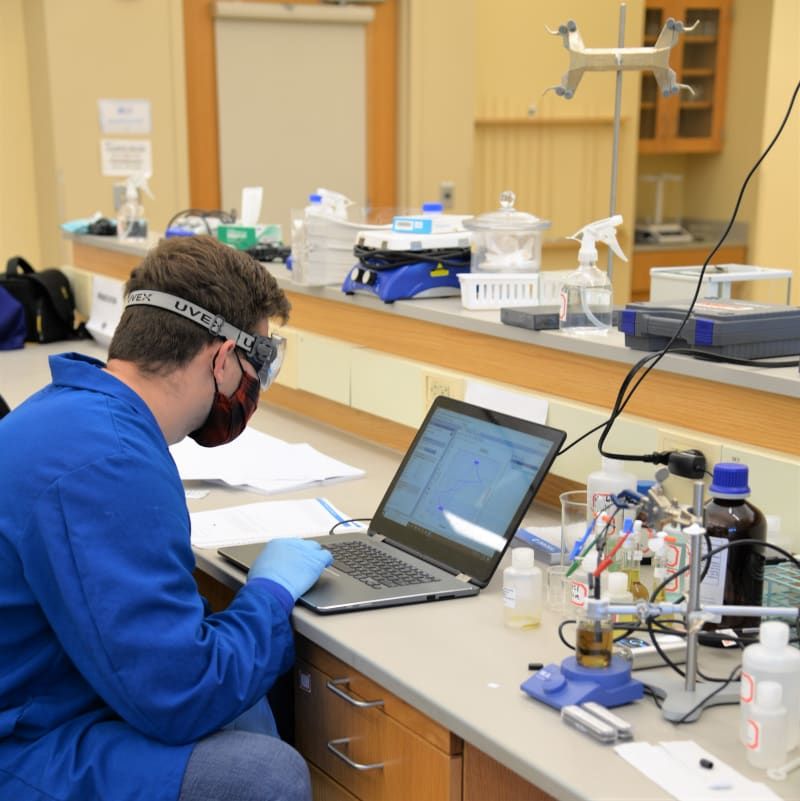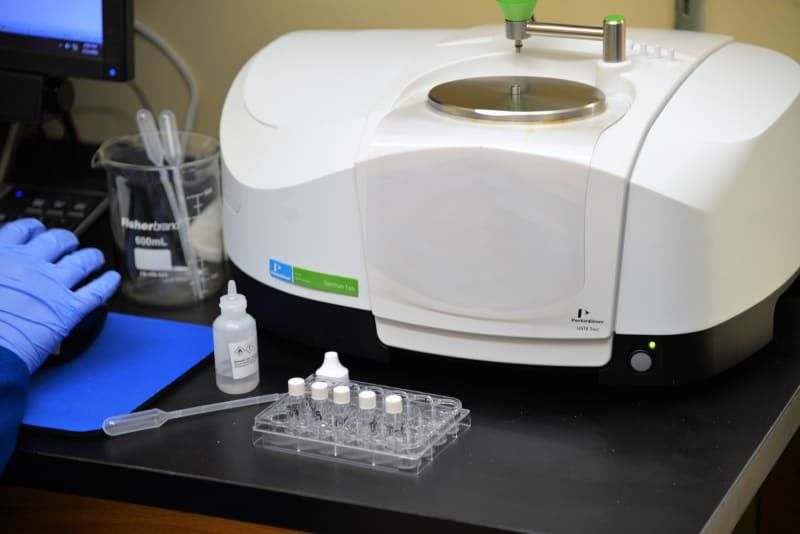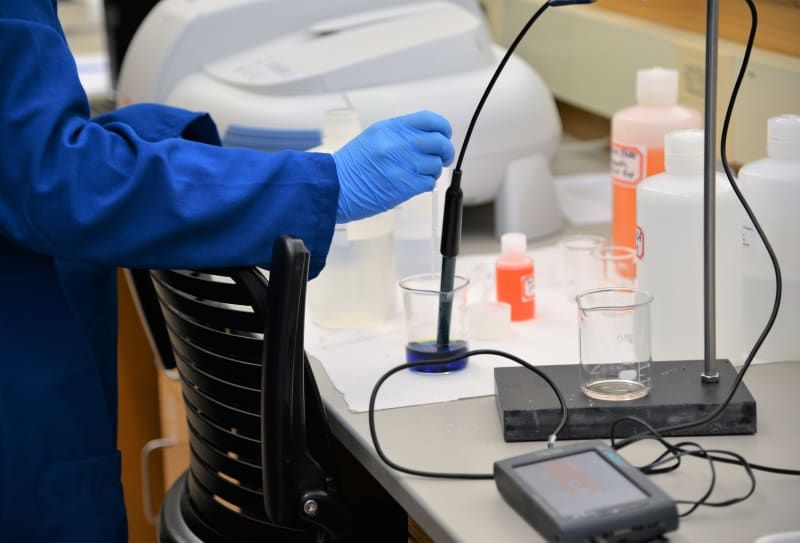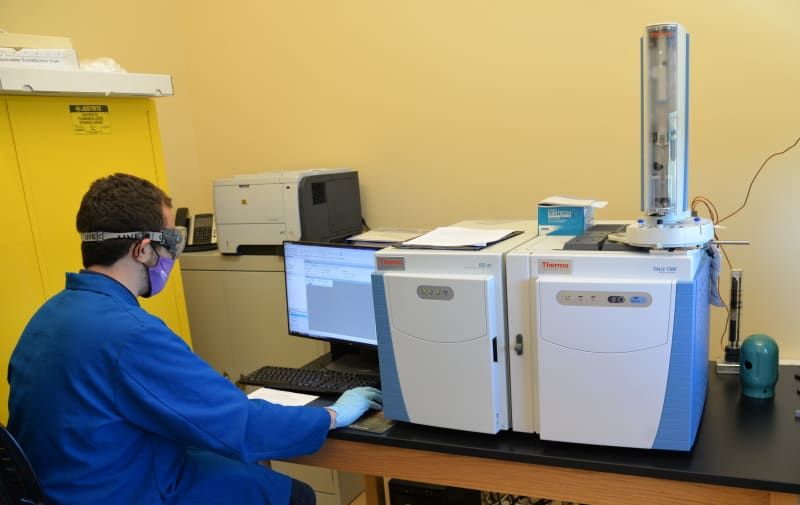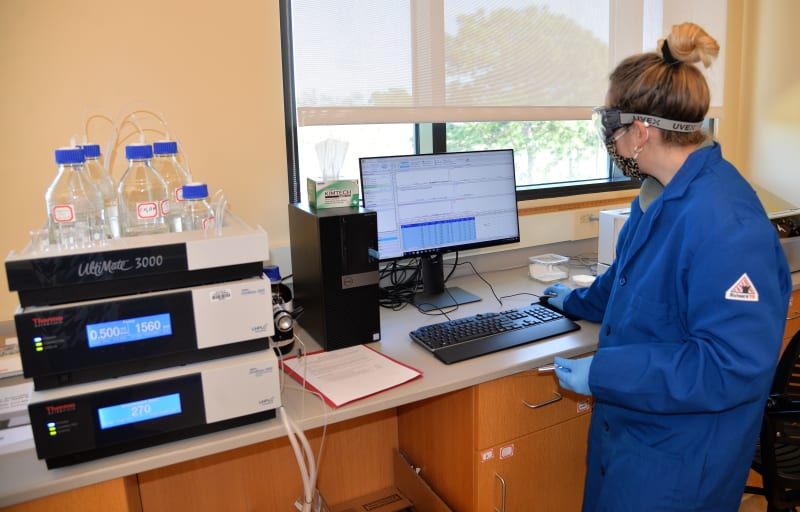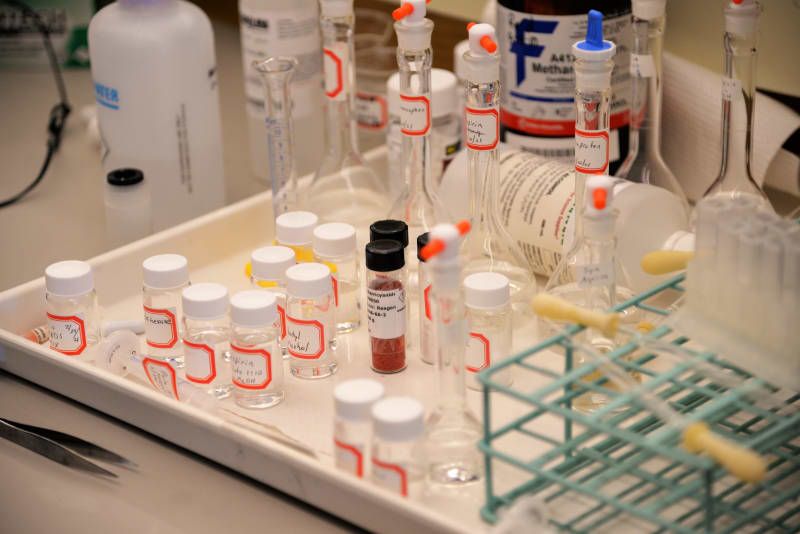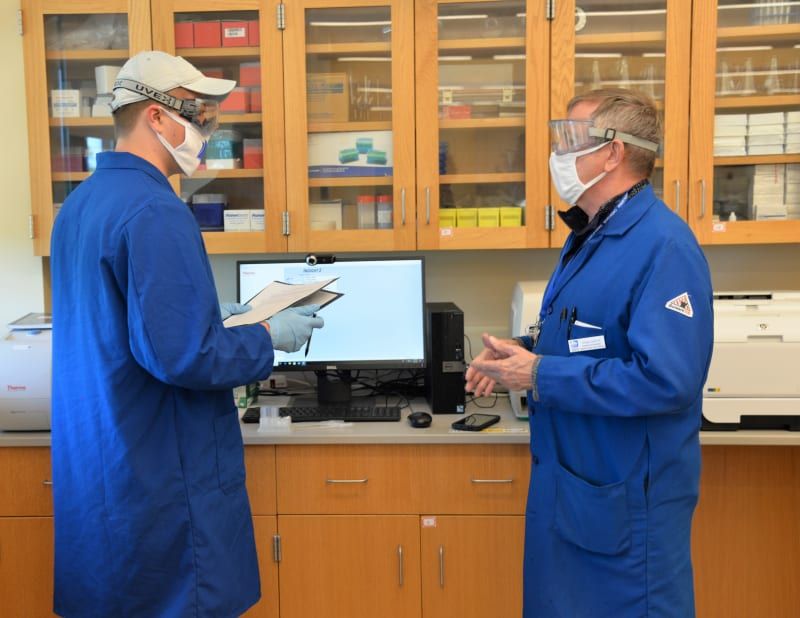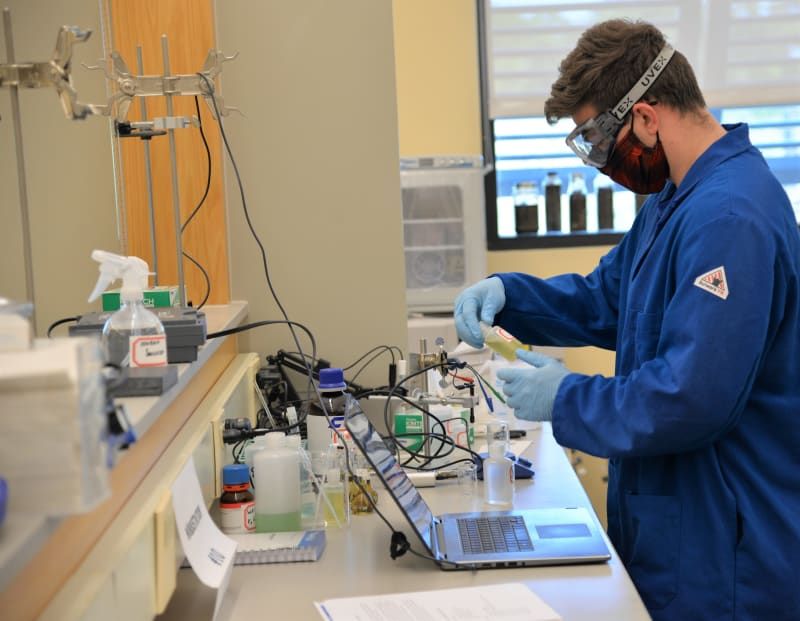- Home
- Academics
- School of Arts and Sciences
- Biological Science
- Biochemistry
Biochemistry

Why study Biochemistry at Coastal Georgia?
At Coastal, you will work alongside professors to design and implement experiments in your upper-level chemistry courses. Throughout the program, you will have access to state-of-the-art instrumentation that many students are only exposed to at the graduate level. You will also have access to multiple internship opportunities in the community, including the chemical industry and pharmacy. The best part of studying at Coastal, however, are the strong relationships you will form with your faculty.
What will I learn?
In the Biochemistry concentration, you will not only learn a strong foundation of biology, but you will also be able to apply chemical principles to all that you learn in your biology courses. You will gain a marketable skill in instrumentation that will give you an edge, whether you wish to go to graduate school, or obtain a position in industry, a crime lab, or a medical lab. Your training in proper sterile technique and sampling procedures will also be reinforced throughout your biology and biochemistry courses.
What can I do when I graduate?
Students who have graduated from the Biochemistry concentration are qualified to work for companies like Pinova, Georgia Pacific, and other chemical industries. Students will be prepared to work in medical, criminology, or quality control labs. Some go on to Masters and Ph.D. programs in fields such as microbiology, genetics, and chemistry.
-
Dr. Ernest Pascoe
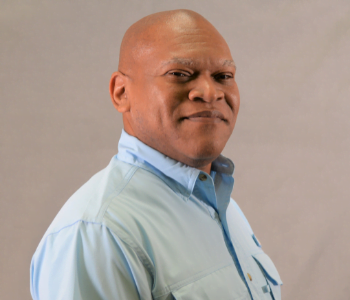 Associate Professor of Chemistry
Associate Professor of ChemistryDr. Ernest Pascoe teaches Organic Chemistry I and II. In addition, he teaches Survey of Chemistry, Principles of Chemistry, and Global Issues, depending on the semester. He received his Bachelor of Science degree from the University of the West Indies in 1994 with a double major in chemistry and biochemistry. Dr. Pascoe’s Ph.D. was obtained at Clark Atlanta University in 2003. The focus of his work was the study of the properties of high temperature polyimides and their decomposition process. Dr. Pascoe’s experience centered around synthesizing organic molecules and using organic monomers to synthesize polyimides. From the standpoint of the classroom, Dr. Pascoe has an interest in studying factors, such as specific prerequisite knowledge, that influence the performance of students in Organic Chemistry. He is also keen on exploring and utilizing different support tools to help in the delivery of chemistry content.
